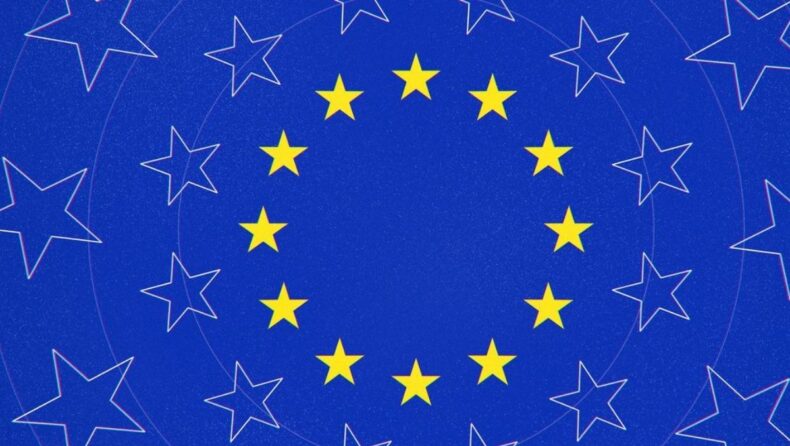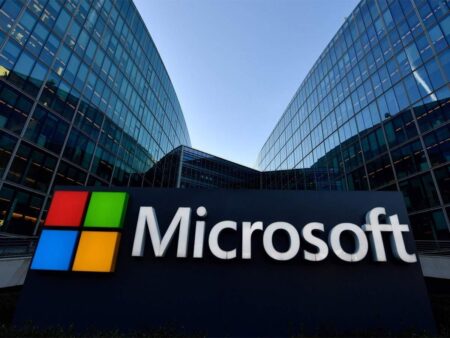The EU has unveiled legislative proposal to date to level the playing field in the technology industry. The EU has dealt with antitrust issues on a case-by-case basis in the past, but the DMA intends to make sweeping reforms that would address structural faults throughout the entire market.
The new Digital Markets Act, or DMA, intends to reduce the power of the largest computer companies while allowing smaller enterprises to compete with mostly US-based firms. In today’s proclamation aiming at interoperability of messaging apps like WhatsApp, Facebook Messenger, and iMessage, the EU says that suppliers must “open up and interoperate with smaller messaging systems if they so want.”
Users will have more alternatives in terms of how they transfer communications, according to the EU, without having to worry about the recipient’s platform. According to the standards, users must be able to “freely choose their browser, virtual assistants, or search engines.”
The legislation has not yet been passed; according to the EU, the text must be completed and scrutinised before Parliament and the Council can adopt it. More details are scheduled to be presented during a press conference to be broadcast live from Brussels on Friday at 8:45 a.m. CET.
A “gatekeeper,” as defined by the Act, is a corporation with a market capitalization of at least €75 billion ($82 billion), at least 45,000 active users, and a “platform,” such as an app or social network. This category includes well-known tech giants like Google, Microsoft, Meta, Amazon, and Apple, as well as smaller companies like Booking.com.
If the “gatekeepers” break the laws, the consequences might be severe: “the Commission can impose fines of up to 10% of its total worldwide turnover in the preceding financial year, and 20% in the case of repeated infringements,” according to the Commission.
The Commission may restrict them from purchasing new enterprises for a period of time if they commit repeated offences.” The DMA has a broad scope and is intended to cover a wide range of potential antitrust proceedings, but it also includes a number of particular requests for IT firms. Here are a few examples:
- Interoperability. Similar services from smaller third parties should be allowed to work with gatekeepers’ platforms. It’s unclear how this would be interpreted, but it could imply that users of large messaging platforms like WhatsApp will be able to connect with users of other platforms.
- The ability to remove the software from a computer. More software and service options will be available to consumers, particularly in mobile operating systems such as iOS and Android. When setting up a new device, consumers should be able to erase any preinstalled software and choose which provider they want to use for applications like email and web browsing.
- Information is readily available. Larger platforms should be able to access data generated by enterprises. One example would be enabling companies that sell goods on sites like Amazon access to Amazon’s performance analytics.
- Advertising transparency. If a company buys Facebook ads, for example, it should have the ability to evaluate its reach independently.
- The time for self-preferencing is passed. Companies are unable to prioritise their offers by leveraging their platforms. This means that until Google runs a competitive tender, it won’t be able to promote its shopping business at the top of its search results.
If these requests sound familiar, it’s because they are. The DMA essentially unites several EU antitrust disputes over the previous decade into a single legislative act, boosting lawmakers’ authority to enforce these measures.
The DMA’s focus on data access, for example, can be linked to past EU accusations that Amazon uses its analytics to gain an advantage over third-party merchants who utilise its platform.
According to the draught proposal submitted in December 2020, if companies break these rules, the EU can impose fines of up to 10% of their global annual revenue, periodic penalty payments of up to 5% of average daily turnover, and specific “behavioural and structural remedies” — that is, changes to how their business or service operates, which could include measures like divesting parts of the company.
This last point may frighten some Internet companies, as current European antitrust laws are regularly blamed for levying modest fines on digital behemoths without forcing them to change their practices.
Apple was found in violation of antitrust laws controlling third-party treatment on the App Store in the Netherlands, for example. Apple has chosen to pay €5 million ($5.5 million) in weekly fines rather than make any changes to its platform.
“This is why the Digital Markets Act includes a full toolkit with more severe penalties,” Vestager said last week to The Verge. “The penalty will increase if you do not make changes. If no change occurs, or if you are a serial offender, you can use the instrument in your arsenal to break up a company.” (Of course, this would only apply to the European Union-based parts of these firms.)
The DMA has been in the works for years, and as a result, it has gotten a lot of pushback from major tech companies. They say that the regulations will stifle innovation and place unneeded barriers in the way of customers.
Some US lawmakers have also criticised the measure, writing to President Joe Biden in February to complain that it “unfairly targets American workers by designating select U.S. technology corporations as ‘gatekeepers’ based on purposefully discriminatory and subjective conditions.”
On the other side, politicians in the United States and the European Union are adopting a hard line against market power abuses in the tech sector. President Biden has pushed through legislation such as a new executive order backing the “right to repair” movement, as well as appointing antitrust activists Lina Khan and Jonathan Kanter to important government positions.
In such a political climate, proponents of the DMA should find that they have a strong hand in implementing these new limits.
Published by – Kiruthiga K
Edited by – Kritika Kashyap













